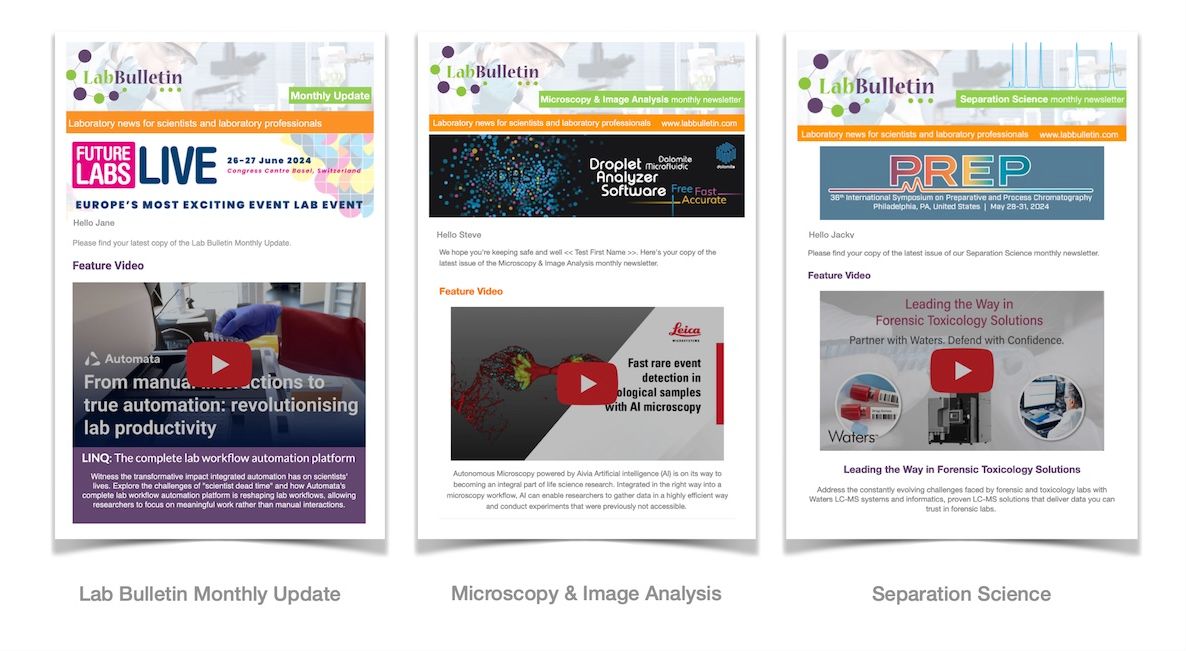American Chemical Society launches Prized Science video series
Did life on Mars become life on Earth? What technology worked invisibly behind the headlines to make the Human Genome Project possible? How did wisps of material barely 1/50,000th the width of a human hair become forerunners of a new genre of medicines?
Those topics highlight the premier episode of a new video series, Prized Science: How the Science Behind ACS Awards Impacts Your Life, launched today by the American Chemical Society (ACS), the world's largest scientific society. Rich with high-definition graphics and animations, and commentary suitable for classroom use and other audiences of students and non-scientists, the videos are available without charge at the Prized Science website, YouTube, iTunes and on DVD.
ACS encourages educators, schools, museums, science centers, news organizations, and others to embed links to Prized Science on their websites. Additional episodes in the series, which focuses on ACS' 2010 award recipients, will be issued periodically in the months ahead.
"Estimates suggest that more than 30,000 significant prizes • most for scientific or medical research • are awarded annually," noted ACS President Joseph S. Francisco, Ph.D. "For many of them, the spotlight of news media publicity rightly focuses on the recipients. Often lost behind the headlines, is an explanation of how the science honored in the award impacts the everyday lives of people throughout the world. That is Prized Science's goal, to give greater visibility to the science that won the prize. In doing so, Prized Science strives to give people who may have no special scientific knowledge, the opportunity to watch, listen, and discover how the chemistry behind ACS' awards transforms life."
Prized Science's launch episode is a three-part HD video featuring the research of Richard Zare, Ph.D., winner of the 2010 Priestley Medal, highest honor bestowed by ACS. Zare is the Marguerite Blake Wilbur Professor in Natural Science at Stanford University. The video highlights Zare's work on the possibility that life existed on Mars; in developing the technology that helped scientists decode the human genome; and in pioneering efforts to enlist nanoparticles in medicine.
Among other scientists featured in upcoming Prized Science episodes:
- Robert Miller, Ph.D., winner of the 2010 ACS Award for Chemistry of Materials, who helped develop materials that shrunk the size and boosted the power of computer chips.
- David Walt, Ph.D., winner of the ACS Award for Creative Invention, who developed advanced "electronic nose" technology for applications that include detecting explosives and diagnosing diseases.
- Michael Crimmins, Ph.D., winner of the Ernest Guenther Award in the Chemistry of Natural Products, whose research underpins efforts to develop treatments for a terrible form of food poisoning involving shellfish.
- Vincent D'Amico, Ph.D., Emiel van Broekhoven, Ph.D., and Juha Jakkula, Ph.D., winners of the ACS Award for Affordable Green Chemistry. They invented an environmentally friendly process for making a key ingredient of "green gasoline," a more environmentally friendly motor vehicle fuel.
The ACS administers more than 60 national awards to honor accomplishments in chemistry and service to chemistry. The nomination process involves submission of forms, with winners selected by a committee consisting of ACS members who typically are technical experts in the nominee's specific field of research.
The American Chemical Society is a nonprofit organization chartered by the U.S. Congress. With more than 161,000 members, ACS is the world's largest scientific society and a global leader in providing access to chemistry-related research through its multiple databases, peer-reviewed journals and scientific conferences. Its main offices are in Washington, D.C., and Columbus, Ohio.